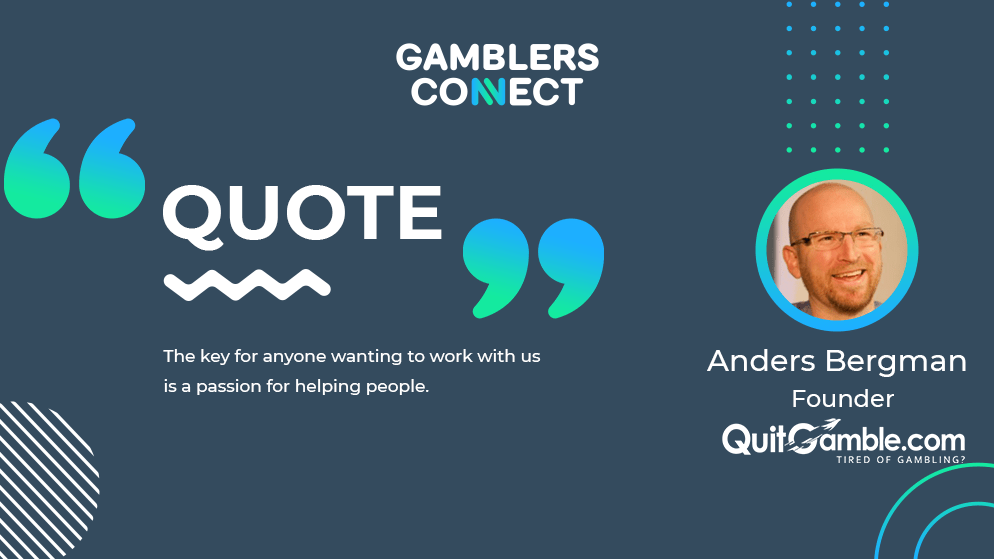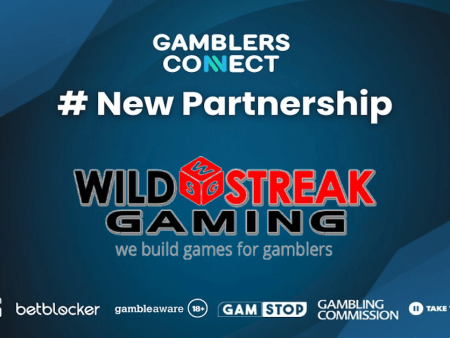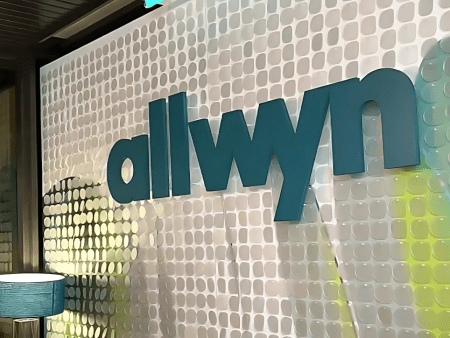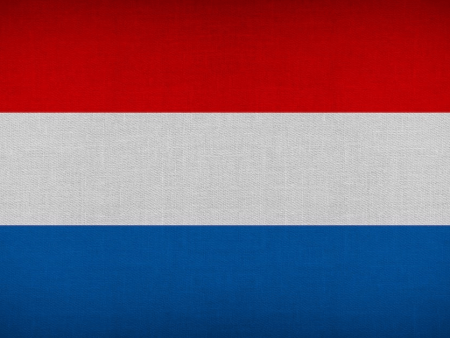Last updated on June 17th, 2025

We recently sat down with Anders Bergman, the Founder of QuitGamble, one of the most dedicated advocates for problem gambling and gambling assistance on the planet, and had an incredibly informative and educational interview where we discussed a wide range of immersive topics including how QuitGamble works, the challenges of running a non-profit organization, the use of AI in the industry, and much, much more!
Anders, you are the founder of QuitGamble, one of the industry’s most dedicated advocates for problem gambling. Tell us, what inspired you to launch QuitGamble?
Anders: I wanted to do something different, and a friend suggested that I help people with gambling problems—that is where it all started 5 years ago. When I began researching addiction, it felt like there was room for more tools and methods to treat addiction. It was a big challenge then and still a big one.
Do you have any previous experience in the world of gambling, given that QuitGamble offers an extensive list of professional tools and features for problem gambling and safer gambling?
Anders: My journey with gambling started early in life. We played cards and roulette when I was a kid. Not for money, but sometimes honor is more important than money. In 2014, I started an affiliate company. I worked as an affiliate for four years, learning about the gambling industry, casino games, and SEO. I don’t remember how many casino and slot reviews I’ve written. We have a few guides on QuitGamble.com which are inspired from that time. One of my favorites is “Can You Win?”. The article covers areas like how a slot machine works, what tricks the developers use to hook us, and the mathematical chance to win more than you lose in an hour.
In light of the previous question, QuitGamble gives access to several tools to help individuals with problem gambling. Tell us, are there any particular tools that players use more than others, or is it a matter of each case individually?
Anders: As platform members, our users get access to the forums, video courses, a welcome challenge, emails, and a large community with 1000s of other members. One of the most popular tools is simple: just reading and sharing your own story. Many users find it powerful and draw a lot of inspiration from each other.
The community is also important. Gambling addiction is often lonely, and knowing that other people struggle and try to stop can be comforting for many of our members.
Given how complex and extensive QuitGamble is, it is no surprise that it requires a lot of dedication and effort. How big is the QuitGamble team, and what does it take for someone to become a member, if that is possible?
Anders: We’re two working full-time with QuitGamble. We’ve had some freelancers helping us on the way with video editing, but in essence, we’re only two.
Our focus is to build a tool that can be scaled as much as possible. We have minimal resources, so to help people, we have automated processes. If we had 10,000 new members tomorrow, we could probably handle it.
In the future, I hope we can expand the team. The key for anyone wanting to work with us is a passion for helping people. If someone doesn’t have the passion, it doesn’t matter how good they are.
One of the most impressive things about QuitGamble is that is 100% free of charge. How difficult is it for a problem gambling website that is free of charge to operate this way, and what are some of the biggest challenges you face?
Anders: The platform has been free for 5 years, and we intend to keep it free for the first 5,000 users. Next year, we’ll start charging for it. There are two reasons for that. The first is motivation. Paying for something is a commitment. It motivates people to take charge of things and do something about their situation.
The second reason is our finances. We have worked for 5 years without external financial support. We have managed by being cost-oriented. But of course, we have had to say no to projects, marketing, and opportunities because we’ve had to focus our resources.
Financial pressure has been tough. But, the biggest challenge is to find ways to motivate our members. Change is always hard, even when you’re motivated. But the people we meet daily barely get out of bed in the morning. A study showed that 69% of problem gamblers are depressed. (Whether depression leads to gambling problems or gambling problems lead to depression is still unclear.) We are constantly testing new things to boost motivation.
As a website that operates on the internet, QuitGamble is accessible from all corners of the globe. Do you accept players from specific states, or can anyone register and use the services of QuitGamble regardless of where they are coming from?
Anders: We accept players worldwide. The platform has members from 120+ countries today, and I think we also have customers from nearly every US state.
Is QuitGamble exclusively tailored for problem gamblers who play online, or can it be used by anyone who requires assistance in battling problem gambling?
Anders: I believe gambling is doing something for a person. That’s why it’s so hard to stop. It doesn’t matter if you gamble online or on land-based casinos. I believe all addictions are the same. We use something to escape the pain. Pain can be physical, but it is more often mental, like stress, anxiety, boredom, or loneliness. Gambling, alcohol, drugs, shopping, and smoking all distract and help people escape from something.
QuitGamble collaborates with prominent responsible gambling organizations, such as Gamban, BeGambleAware, and GamCare. How important is it for responsible gambling advocates to work together to battle problem gambling, and what are the most significant benefits of these collaborations?
Anders: I think there is considerable value in collaborations in general. Some organizations work with self-exclusion, which is a fantastic tool. However, self-exclusion isn’t the solution to stop gambling. It just limits access to gambling. Therefore, it’s important to offer other kinds of support simultaneously. That’s a perfect time for collaboration between these organizations.
It is no secret that AI software such as ChatGPT is starting to be used in almost every industry. Do you see a place for AI in the realm of responsible gambling in the future, and do you see it as something that can help in battling problem gambling?
Anders: AI is fascinating and scary. There is no doubt that AI will take part in the process of helping people with gambling problems. How, I don’t know yet. But unfortunately, I believe that AI will take many people’s jobs in the next 10-20 years. To have a job is very important, not only financially, but to feel part of society. Losing your job can create stress, anxiety, helplessness, anger, and many more painful feelings. These are all triggers that will feed any addiction.
Lastly, as the founder of one of the most dedicated organizations for problem gambling, in a way, you are pretty much going against gambling operators. Do you believe gambling should be banned altogether and deemed a harmful activity, or is it better to be regulated and controlled by designated authorities such as the Malta Gaming Authority and the UK Gambling Commission?
Anders: No, I don’t think gambling should be banned. I believe in personal responsibility. Nobody forces you to gamble. In the same way, we’re not against gambling operators.
I would like to see stricter roles in marketing, though. In some countries, you can’t watch TV, listen to the radio, watch your favorite football team, or even go outside your door before you have a gambling commercial in your face. Gambling should be entertainment, but it’s only entertainment if people gamble moderately. We don’t need commercials everywhere. If people want to gamble, they will find a way.
If we want people to gamble responsibly, society must also be responsible.



